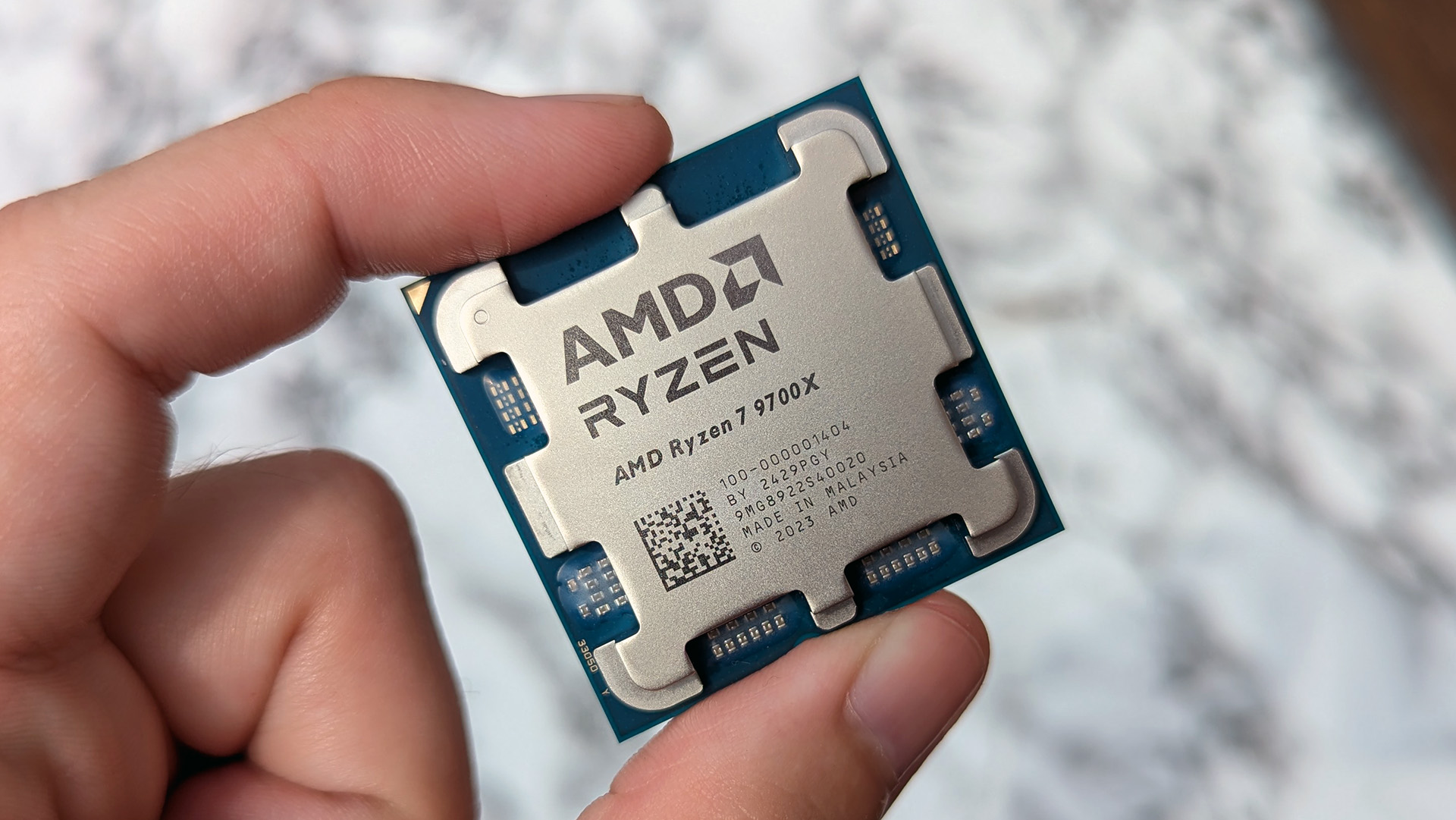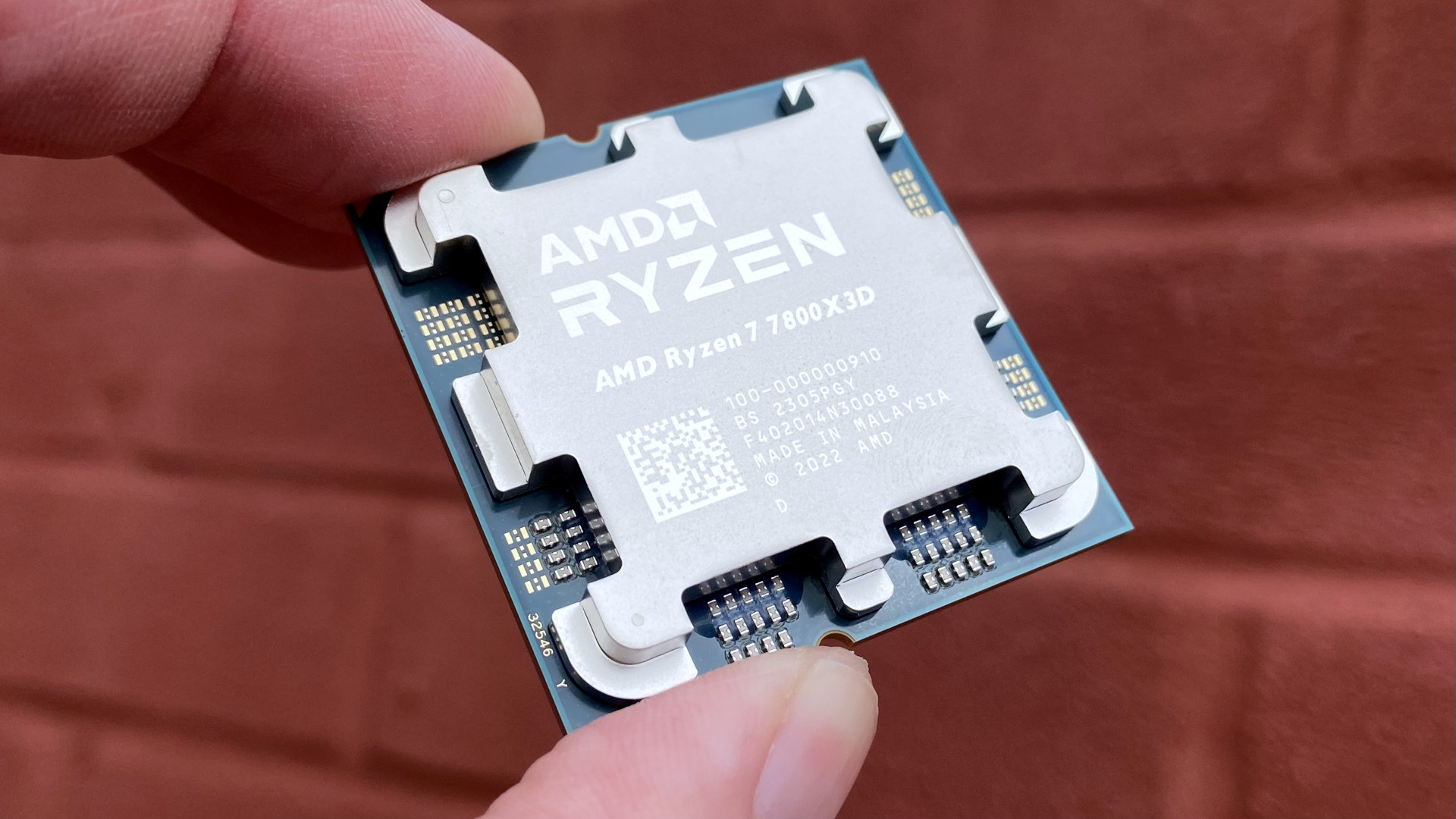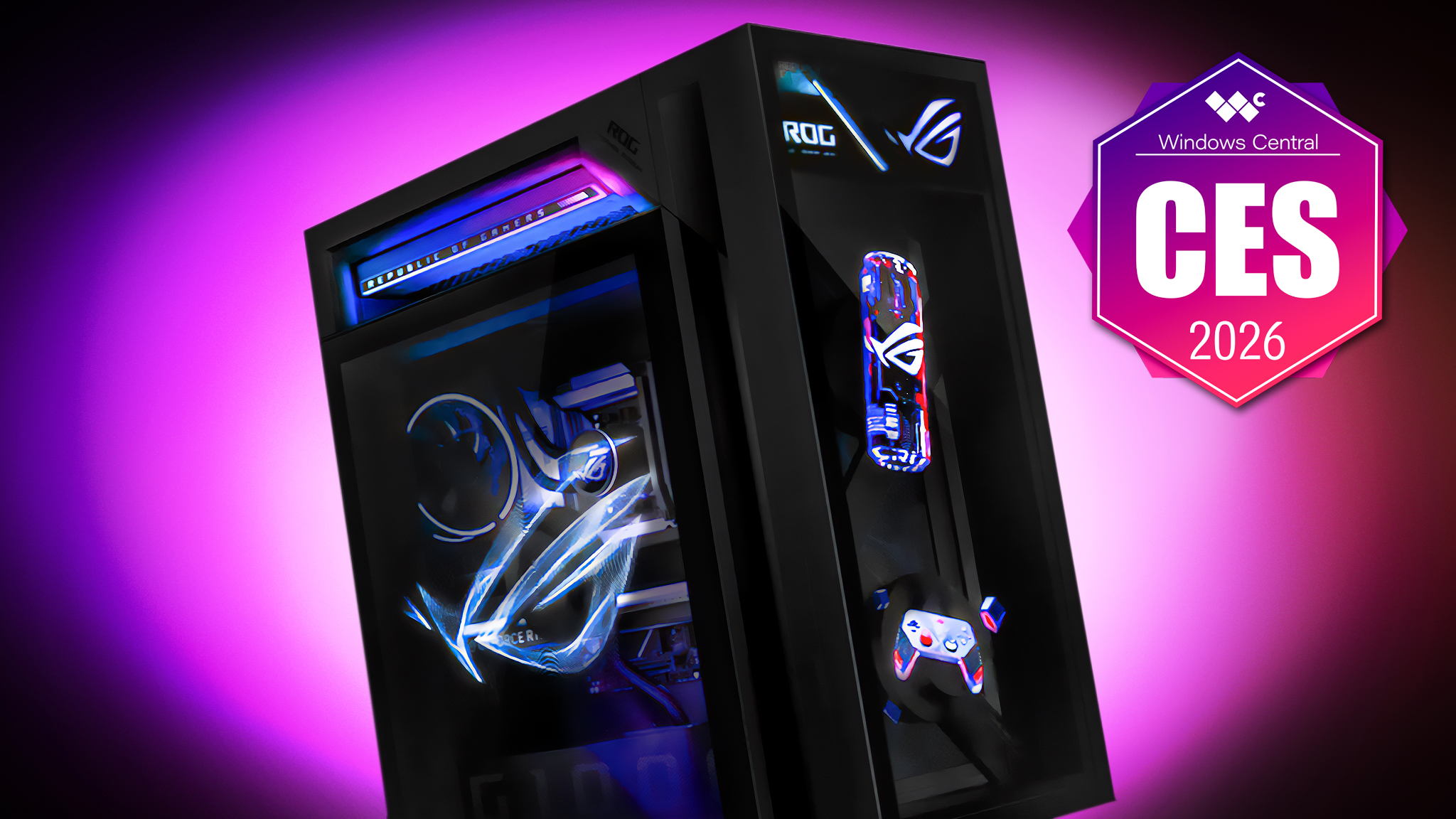AMD Ryzen 7 9700X vs. Ryzen 7 7800X3D: A bigger number isn't always better, especially for PC gaming
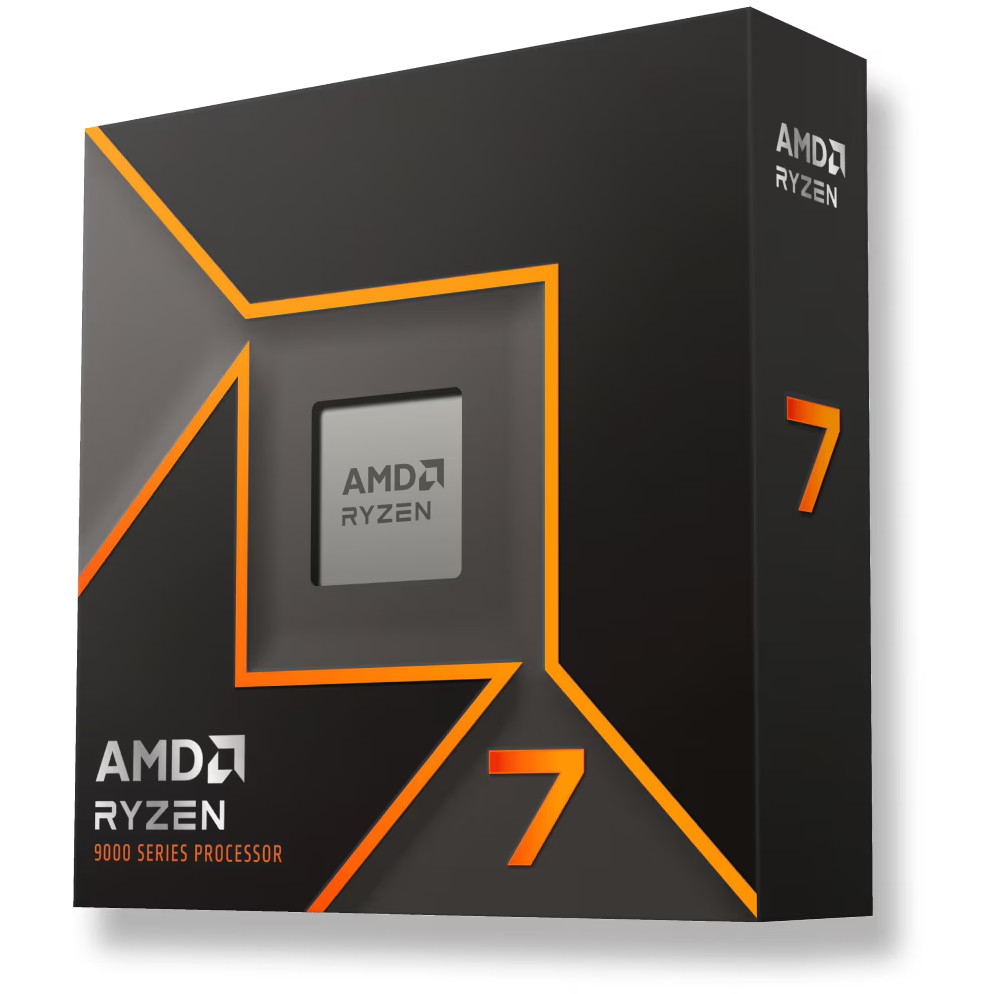
Zen 5 efficiency
AMD's Ryzen 7 9700X is efficient and powerful, running at 65W and offering performance nearly on par with the Ryzen 7 7800X3D for compute workloads. However, the lack of 3D V-Cache makes it not as suited for a dedicated life of gaming.
Pros
- Runs at 65W instead of 125W
- Zen 5 with 4nm process
- Still slightly cheaper than Ryzen 7 7800X3D
- Great for workloads and gaming
Cons
- No 3D V-Cache for gaming improvements
- No bundled cooler
- Multi-core performance only slightly better than last-gen
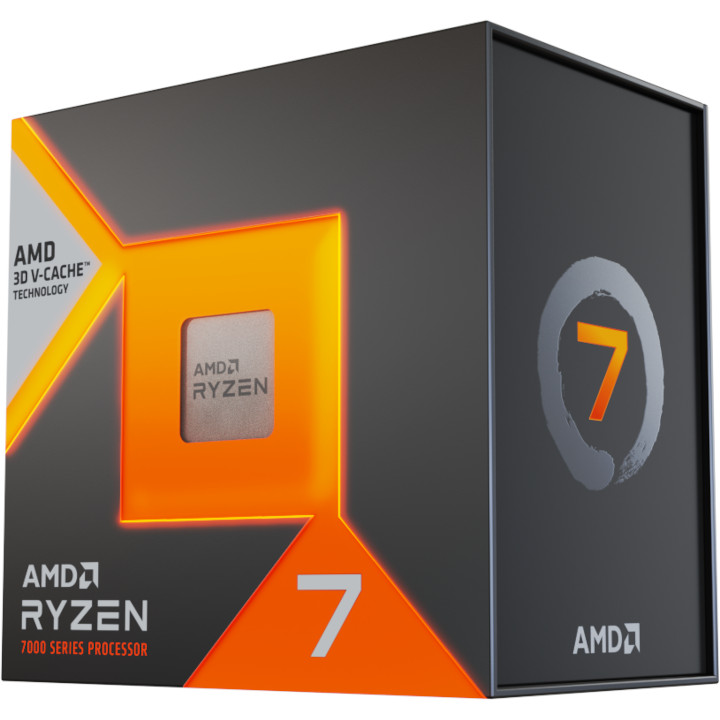
Last-gen gaming champ
The AMD Ryzen 7 7800X3D pulls quite a bit more power than the new 9700X, but it's the right choice for PC gamers thanks to its 3D V-Cache technology. If you want to maximize performance in your favorite titles, this is the way to go.
Pros
- 3D V-Cache brings massive gaming performance improvements
- Includes an air cooler
- Works with AM5 socket same as Ryzen 9000
- Excellent value for gamers
Cons
- Productivity computing performance not as impressive
- Runs at 125W
- Ryzen 9000 X3D chips are expected in the near future
The first wave of AMD's Ryzen 9000 "Granite Ridge" processors (CPU) have launched, starting with the Ryzen 5 9600X and Ryzen 7 9700X. The new Zen 5 CPUs bring improved power efficiency and stellar performance, though the gains over Ryzen 7000 aren't necessarily big enough to warrant an upgrade in all cases.
There are undoubtedly plenty of PC gamers and builders wondering if the Ryzen 7 9700X is the right choice for their next upgrade, while others are still musing over the last-gen Ryzen 7 7800X3D. Both are impressive CPUs, but one is made specifically for gaming, while the other is a solid mid-range pick for productivity and fun.
Considering the price is so close between the two Ryzen 7 chips, your decision might not be as easy as you thought. I've put together this guide to help you pick the right Ryzen 7 CPU for your PC.
AMD Ryzen 7 9700X vs. Ryzen 7 7800X3D: Specs
Before getting into an explanation of 3D V-Cache, benchmark numbers, and review highlights, it's worth taking a look at the raw specs that make up these chips.
| Header Cell - Column 0 | AMD Ryzen 7 9700X | AMD Ryzen 7 7800X3D |
|---|---|---|
| Cores / Threads | 8 / 16 | 8 / 16 |
| Architecture | Zen 5 | Zen 4 |
| Base Clock | 3.8GHz | 4.2GHz |
| Max Boost Clock | 5.5GHz | 5GHz |
| L1 Cache | 640KB | 512KB |
| L2 Cache | 8MB | 8MB |
| L3 Cache | 32MB | 96MB |
| Default TDP | 65W | 120W |
| Core Tech | TSMC 4nm FinFET | TSMC 5nm FinFET |
| Unlocked? | Yes | Yes |
| Socket | AM5 | AM5 |
| Launch Price | $359 | $449 |
| Current Price | $359 | $366 |
AMD Ryzen 7 9700X vs. Ryzen 7 7800X3D: Price and availability
The new Ryzen 7 9700X is now available to buy. Its original launch date alongside its Ryzen 5 9600X sibling was July 31, but a short delay caused by mislabeling pushed it back to August 8.
The best place to buy the Ryzen 7 9700X looks to be Newegg, where it retails for its launch price of $359. That's about $110 cheaper than the launch price of the Ryzen 7 7800X, and it remains slightly cheaper than the Zen 4 chip today. You can also find the Ryzen 7 9700X at Amazon.
AMD's last-gen Ryzen 7 7800X3D is still readily available to buy today at most major online retailers, including Newegg, Best Buy, and Amazon. It's cheapest at Amazon and Newegg where the retail price has fallen to about $366.
All the latest news, reviews, and guides for Windows and Xbox diehards.
An air cooler is included with the 7800X3D, but AMD recommends an AiO liquid system to achieve the best performance possible. The Ryzen 7 9700X does not include a cooling solution in the package, and AMD recommends a premium air cooler for the chip.
Check out our favorite motherboards for the Ryzen 7 9700X if you're in search of an AM5 board.
AMD Ryzen 7 9700X vs. Ryzen 7 7800X3D: 3D V-Cache explained
AMD's 3D V-Cache first appeared in the Ryzen 7 5800X3D and has made its way into a few more chips, including the Ryzen 7 7800X3D that I'm comparing here. While all CPUs have cache attached to the CPU die to better serve the processor with data, the size and layout of the cache make a big difference in performance. AMD's Hybrid Bond 3D approach — which it calls 3D V-Cache — allows for a much higher connection density between chip layers for better performance.
When looking at the specs for a modern CPU, you'll usually see L1, L2, and L3 cache. They're usually measured in kilobytes (KB) and megabytes (MB). The "L" represents the level of the cache, with L1 being closest to the CPU and thus offering the fastest performance. The L3 cache, furthest from the CPU, has the largest capacity.
AMD's 3D V-Cache technology allows the L3 cache layers to be stacked vertically on top of the chip without making the chip any thicker. The 7600X3D has a whopping 96MB of L3 cache to serve the chip.
Why does that matter for gaming? Your PC can't predict what you're going to do in a game, and thus, it must make countless calculations as fast as possible to keep up with your play. Instead of relying on the system's RAM — which is comparatively very slow — the CPU can pull the data it needs from the specialized 3D V-Cache. This is why AMD's X3D chips are so good for gaming PCs.
The new Ryzen 7 9700X lacks the 3D V-Cache, instead offering up 32MB at the regular L3 level. We expect AMD to launch Ryzen 9000 X3D variants in the near future, as it has done with previous generations.
AMD Ryzen 7 9700X vs. Ryzen 7 7800X3D: Compute or gaming power?
The Ryzen 7 9700X and the Ryzen 7 7800X3D both have 8 cores, 16 threads, hyperthreading, and overclocking support. The older chip's base clock speed is slightly higher at 4.2GHz compared to 3.8GHz, but the newer chip has a higher boost clock at 5.5GHz (compared to 5GHz).
As explained above, the inclusion of the 3D V-Cache tech in the Ryzen 7 7800X3D continues to make it the better choice for gamers even after the launch of the Ryzen 7 9700X. You can expect noticeably better framerates in your favorite titles when using the 7800X3D, though it does pull a lot more power and puts out more heat.
The Ryzen 7 9700X runs cooler and draws less power, and it can best the 7800X3D in regular computing benchmarks. That's true for single- and multi-core applications. If you're a creator or a designer who needs a lot of power to handle heavy workloads, the 7900X should be a great choice.
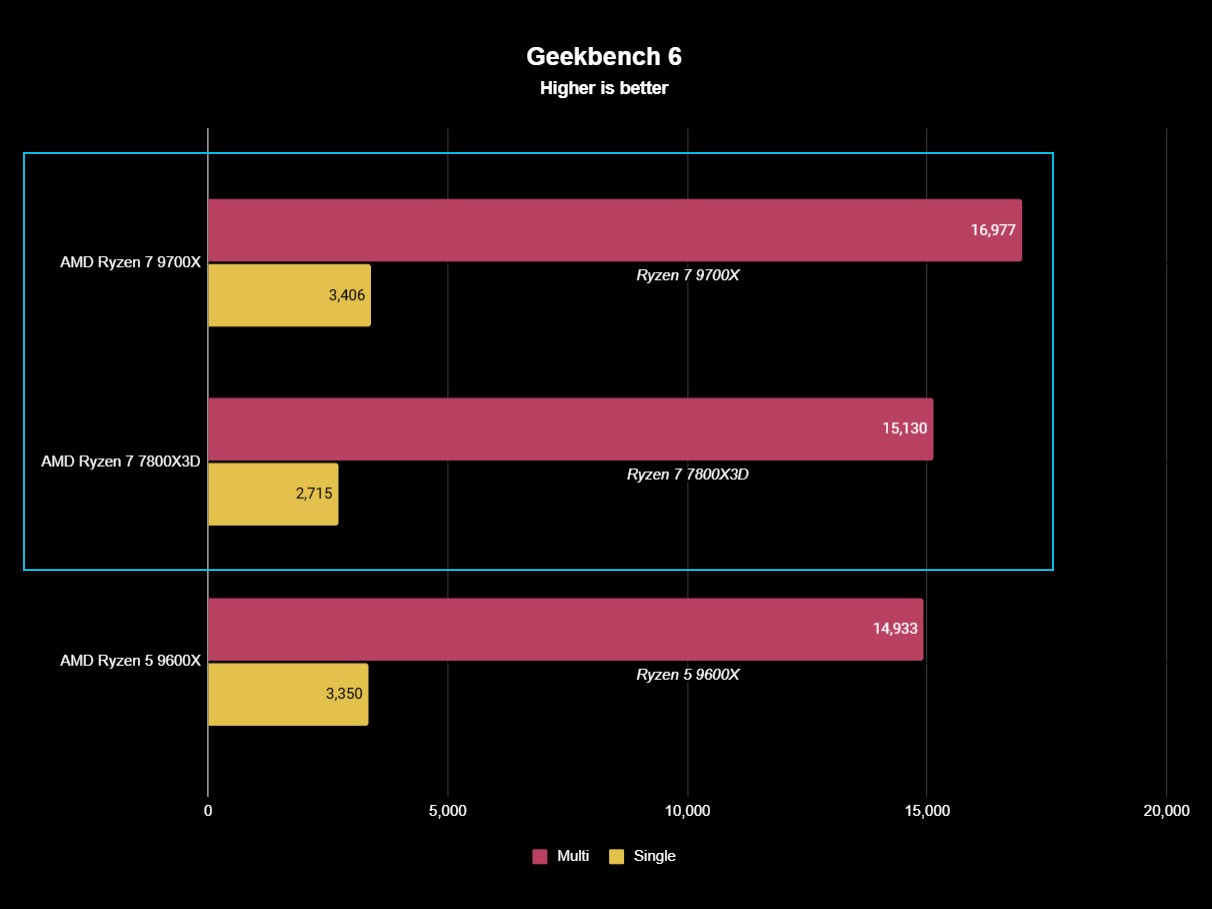
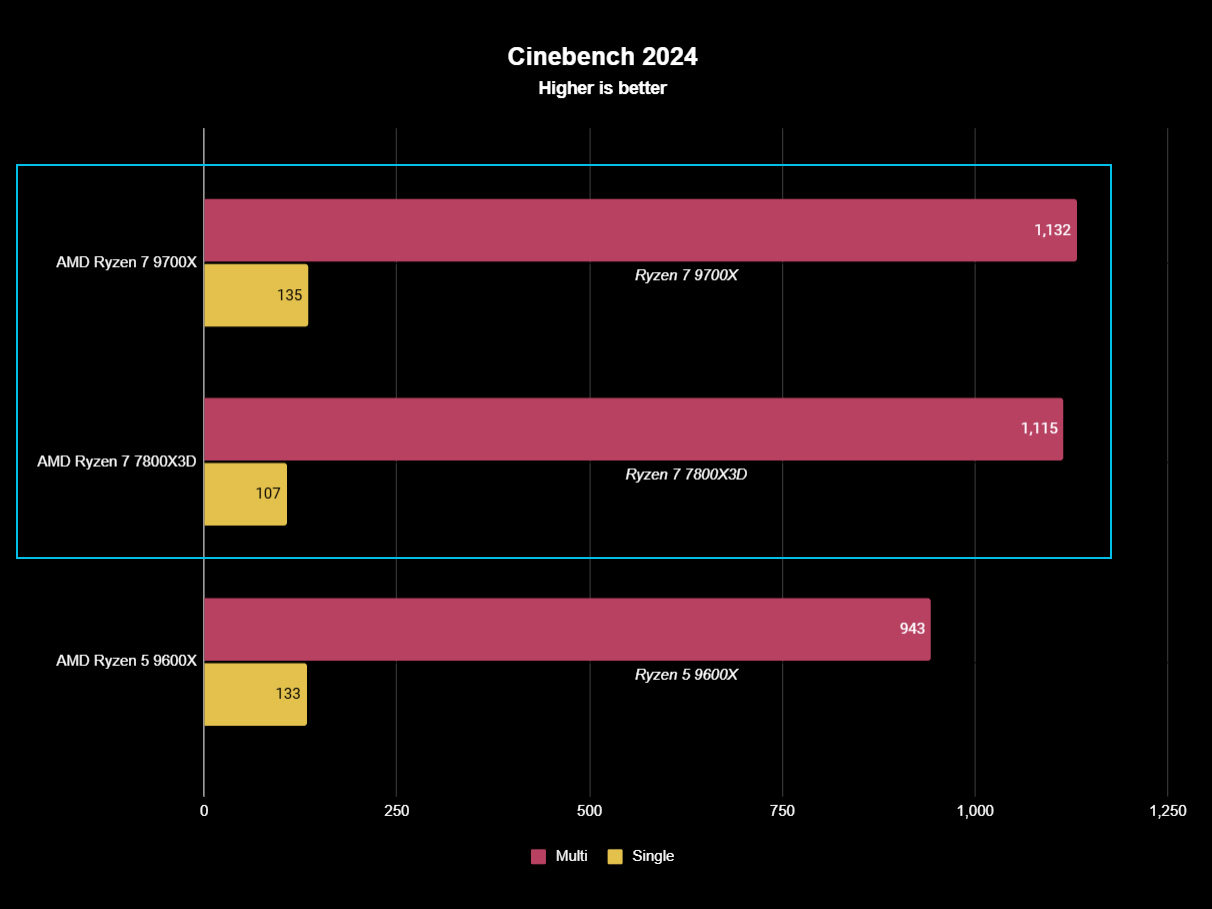
That's not to say the newer chip isn't also good for gaming. In Windows Central Editor Ben Wilson's Ryzen 7 9700X review, he says:
"While it doesn't include AMD's 3D V-Cache aimed at gamers, the Ryzen 7 9700X still matches the previous-gen Ryzen 7 7800X3D [in compute scores], a powerhouse processor that has been all too easy to recommend as the best gaming CPU since its release. However, that shouldn't signal to gaming enthusiasts who adopted the Zen 4 -X3D chip that it's already time to upgrade. The performance improvements are marginal, so this serves as more of a temptation to those looking to upgrade from a Ryzen 5000 Series chip."
Upgrading or building a PC around a CPU that can handle work and play is nothing new, and in that case, I'd lean more toward the Ryzen 7 9700X. For dedicated gamers, though, the Ryzen 7 7800X3D remains the top choice.
AMD Ryzen 7 9700X vs. Ryzen 7 7800X3D: Which should you buy?
PC gamers building or upgrading a PC for the sole intent of playing their favorite games should stick with the Ryzen 7 7800X3D. Its 3D V-Cache benefit cannot be understated, and you'll see marked improvements to framerates. As Ben Wilson mentioned in his Ryzen 7 7800X3D review, the "CPU struggles with productivity, but do you even care?"
For everyone else, especially those who split time between gaming and work, the Ryzen 7 9700X is a winner. It's more efficient, it's slightly cheaper, and it comes with all the benefits of the Zen 5 architecture. It uses the same AM5 motherboard socket as Ryzen 7000 chips, and an air cooler is more than enough to keep it happy.
Gamers who already have a Ryzen 7 7800X3D should feel no need to upgrade to the Ryzen 7 9700X. That might change when AMD launches the X3D versions of Ryzen 9000, but that's not in the immediate future.

Zen 5 efficiency
Stick with the Ryzen 7 9700X if you're building or upgrading a PC for mixed use. It's great at tearing through workloads, and it'll also allow you to play all modern games (assuming you have a good GPU to pair with it). It's slightly cheaper and much more efficient than the Ryzen 7 7800X3D.

Last-gen gaming champ
The Ryzen 7 7800X3D isn't the newest chip from AMD, but its 3D V-Cache tech keeps it at the top of the pile for dedicated PC gaming purposes. Its price has dropped a lot and you won't pay much more compared to the 9700X, but watch out for the higher 125W TDP.

Cale Hunt brings to Windows Central more than nine years of experience writing about laptops, PCs, accessories, games, and beyond. If it runs Windows or in some way complements the hardware, there’s a good chance he knows about it, has written about it, or is already busy testing it.

